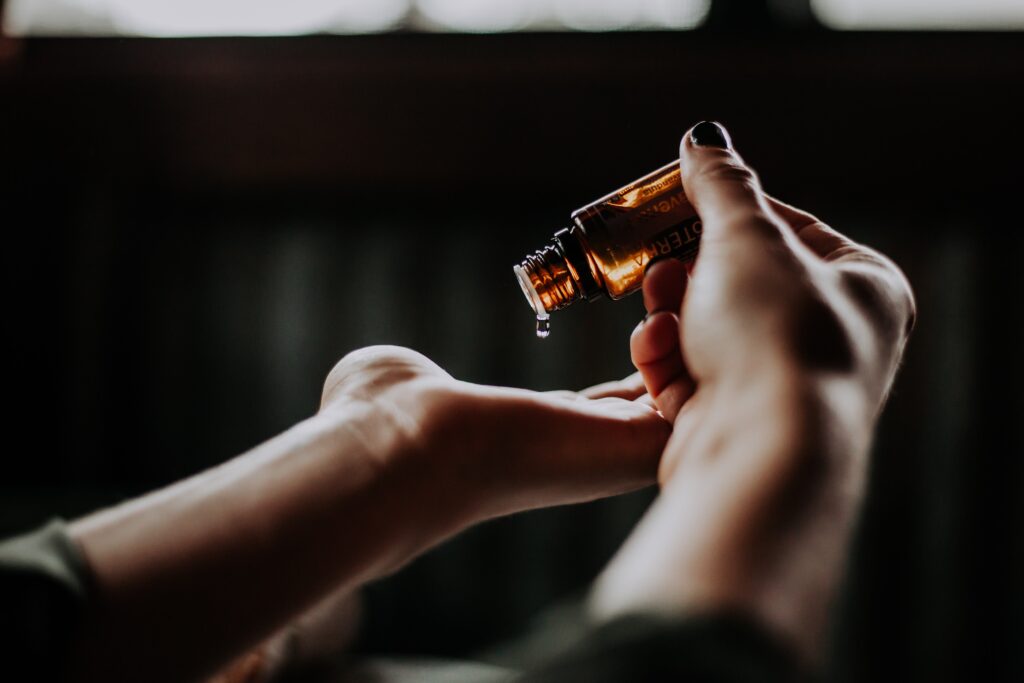Dealing with itching can be incredibly frustrating, and finding quick relief is a top priority.

Whether it’s a mosquito bite, dry skin, or an allergic reaction, understanding what stops itching fast can bring swift comfort.
Here are some effective and accessible solutions.
1. Cool Compress:
- Why it works: Applying a cool compress can soothe irritated skin, reduce inflammation, and provide immediate relief.
- How to use: Place a clean, damp cloth or an ice pack on the affected area for 10-15 minutes.
2. Over-the-Counter (OTC) Antihistamines:
- Why they work: OTC antihistamines like cetirizine or loratadine can help combat itching by blocking histamine release.
- How to use: Follow the recommended dosage on the packaging or consult a healthcare professional.
3. Topical Anti-Itch Creams:
- Why they work: Creams containing ingredients like hydrocortisone or calamine can provide targeted relief to itchy areas.
- How to use: Apply a thin layer of the cream directly on the affected skin, following the product’s instructions.
4. Oatmeal Bath:
- Why it works: Oatmeal has anti-inflammatory properties that can calm irritated skin and relieve itching.
- How to use: Add colloidal oatmeal to a warm bath and soak for 15-20 minutes.
5. Aloe Vera Gel:
- Why it works: Aloe vera has cooling and anti-inflammatory properties that can soothe and moisturize itchy skin.
- How to use: Apply pure aloe vera gel to the affected area and gently massage.
6. Avoid Scratching:
- Why it works: While it may seem obvious, avoiding scratching prevents further irritation and promotes faster healing.
- How to practice: Use distraction techniques, wear breathable fabrics, and keep your nails short to minimize the urge to scratch.
7. Tea Tree Oil:
- Why it works: Tea tree oil has antimicrobial and anti-inflammatory properties, making it effective for relieving itching.
- How to use: Dilute a few drops of tea tree oil with a carrier oil and apply to the affected area.
8. Stay Hydrated:
- Why it works: Hydrated skin is less prone to itching and irritation.
- How to practice: Drink an adequate amount of water daily and use a moisturizer to keep the skin hydrated.
9. Avoid Irritants:
- Why it works: Identifying and avoiding irritants like harsh soaps or certain fabrics can prevent itching.
- How to practice: Choose fragrance-free, hypoallergenic products and opt for breathable clothing.
10. Seek Medical Advice:
- Why it works: If itching persists or is accompanied by other concerning symptoms, consulting a healthcare professional is crucial.
- When to seek help: Persistent itching, rash spreading rapidly, or signs of infection requiring medical attention.
What causes itching?
Itching, also known as pruritus, can be caused by a variety of factors, ranging from minor irritants to underlying medical conditions.
Here are some common causes of itching that you must know, so without any further delay let’s dive in and explore:
1. Dry Skin:
- Cause: Lack of moisture in the skin can lead to dryness, flakiness, and itching.
- Treatment: Regular moisturizing to keep the skin hydrated.
2. Allergies:
- Cause: Exposure to allergens, such as certain foods, plants, or substances, can trigger an allergic reaction, resulting in itching.
- Treatment: Identifying and avoiding allergens, and in some cases, antihistamines.
3. Insect Bites and Stings:
- Cause: Bites or stings from insects like mosquitoes, fleas, or bedbugs can cause localized itching.
- Treatment: Topical anti-itch creams, cold compresses, or antihistamines.
4. Contact Dermatitis:
- Cause: Skin irritation due to contact with certain substances or allergens.
- Treatment: Avoiding irritants, using hypoallergenic products, and topical steroids.
5. Skin Infections:
- Cause: Fungal, bacterial, or viral infections can lead to itching.
- Treatment: Antifungal or antibiotic medications depending on the type of infection.
6. Eczema (Dermatitis):
- Cause: Chronic skin condition characterized by inflammation and itching.
- Treatment: Moisturizers, topical steroids, and avoiding triggers.
7. Psoriasis:
- Cause: Chronic autoimmune condition causing rapid skin cell growth, leading to red, scaly patches and itching.
- Treatment: Topical treatments, phototherapy, and systemic medications.
8. Medication Side Effects:
- Cause: Some medications can cause itching as a side effect.
- Treatment: Consultation with a healthcare professional to adjust or change medications.
9. Hives (Urticaria):
- Cause: Allergic reaction leading to raised, red welts on the skin accompanied by itching.
- Treatment: Antihistamines and identifying and avoiding triggers.
10. Pregnancy-Related Itching:
- Cause: Conditions like cholestasis of pregnancy can cause intense itching.
- Treatment: Medical supervision and management to ensure the health of the mother and baby.
11. Neurological Causes:
- Cause: Certain neurological conditions or nerve disorders can cause itching.
- Treatment: Addressing the underlying neurological issue.
- Cause: Conditions such as kidney disease, liver disease, or diabetes can cause generalized itching.
- Treatment: Managing the underlying medical condition.
13. Stress and Anxiety:
- Cause: Emotional stress or anxiety can sometimes manifest as itching.
- Treatment: Stress management techniques, counseling, or therapy.
It’s important to note that persistent or severe itching should be evaluated by a healthcare professional, as it could be a symptom of an underlying medical condition that requires specific treatment.
If you are experiencing persistent itching or if itching is accompanied by other concerning symptoms, consult with a healthcare provider for a proper diagnosis and treatment plan.
We are just summing up the causes and insights, not giving any consultation, so better advice will be to go for a diagnosis from a specialist doctor.
Conclusion on What Stops Itching Fast
Stopping itching fast involves a combination of at-home remedies, maintaining good skincare practices, and knowing when to seek professional help.
By incorporating these tips into your routine, you can find relief and promote healthier, itch-free skin.
So you have got good insights on how to stop itching and why it causes it, don’t forget to share the same word with your friends and family members too to get them aware of it.
Thank You 🙂